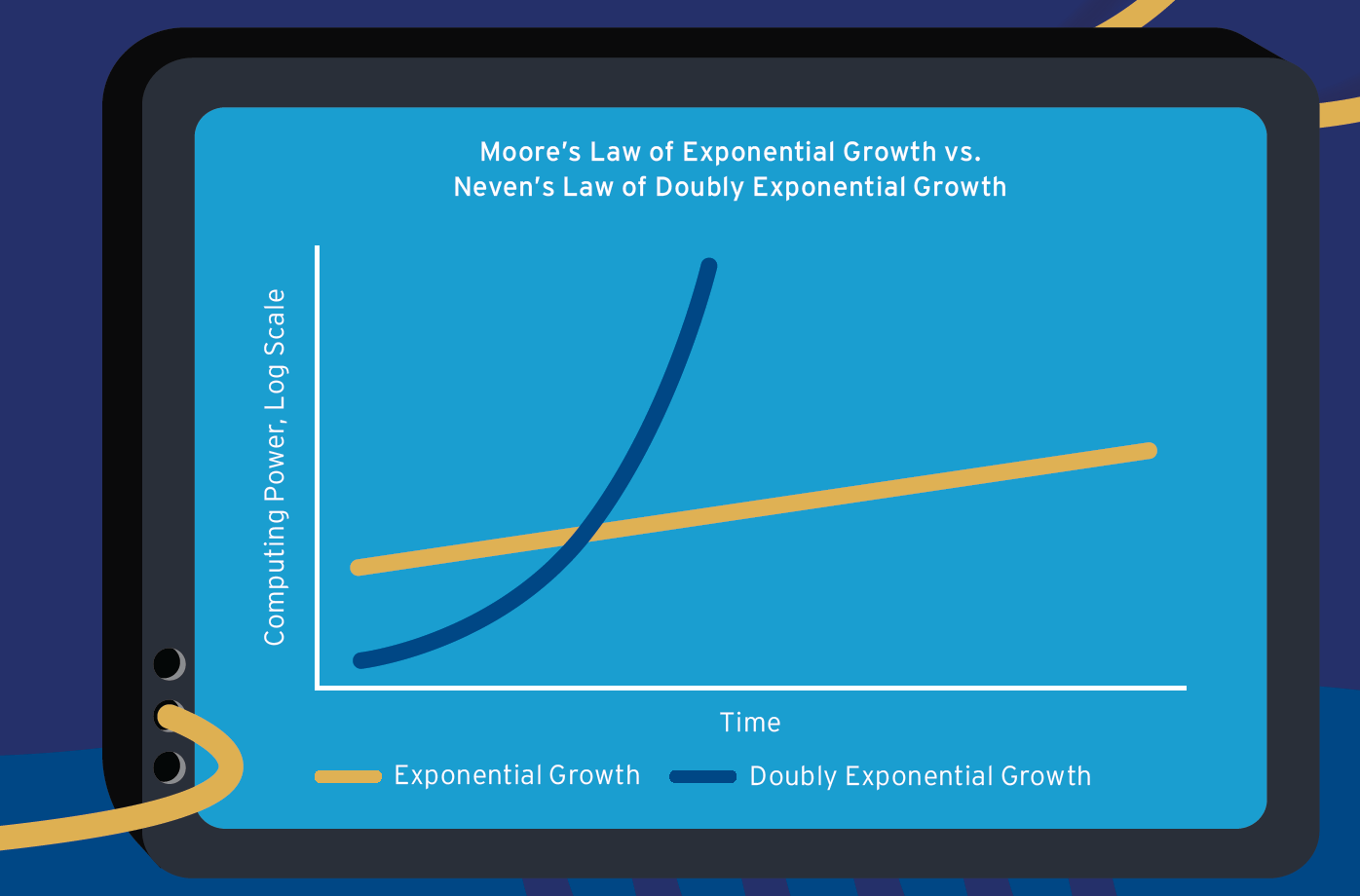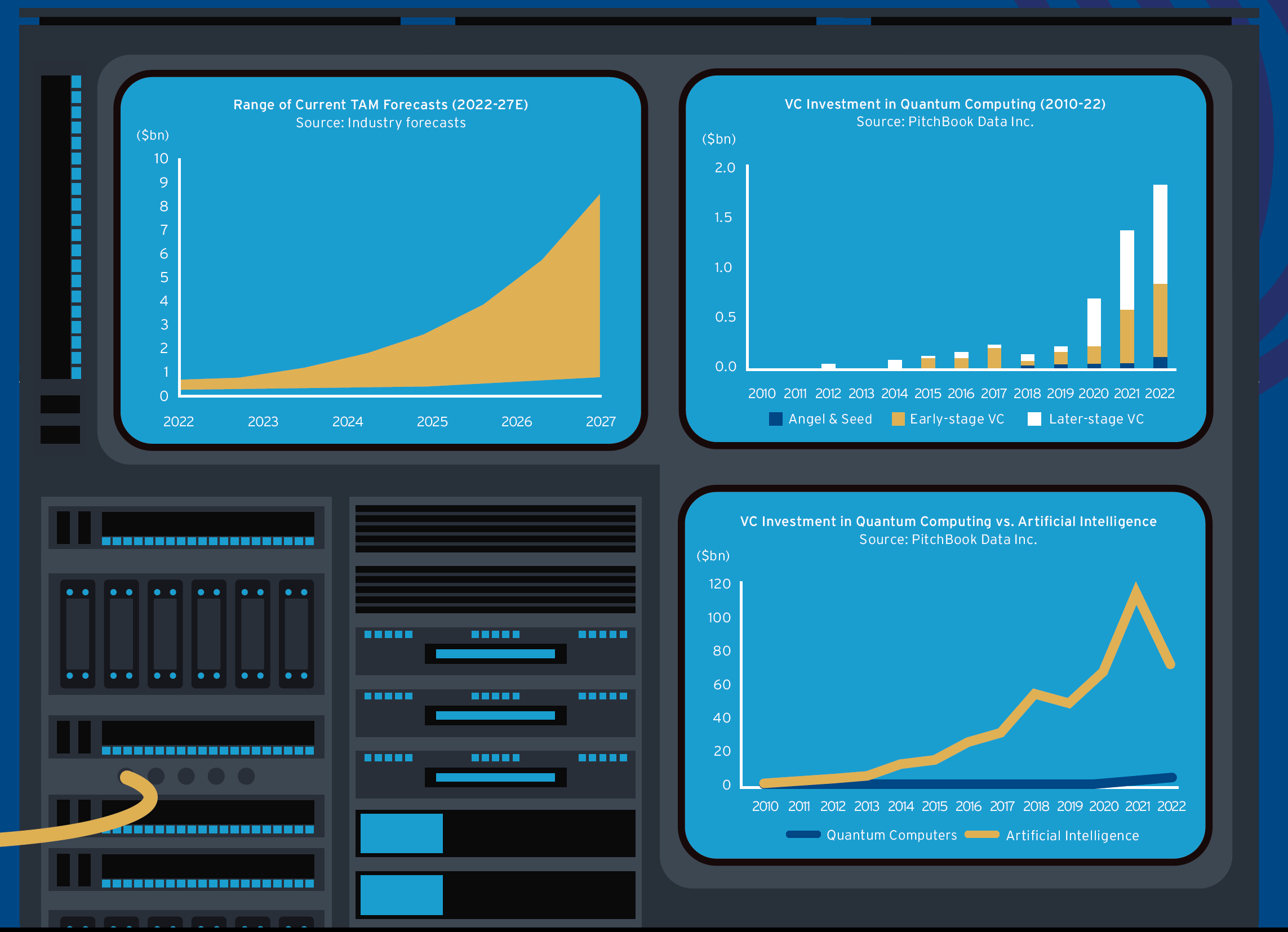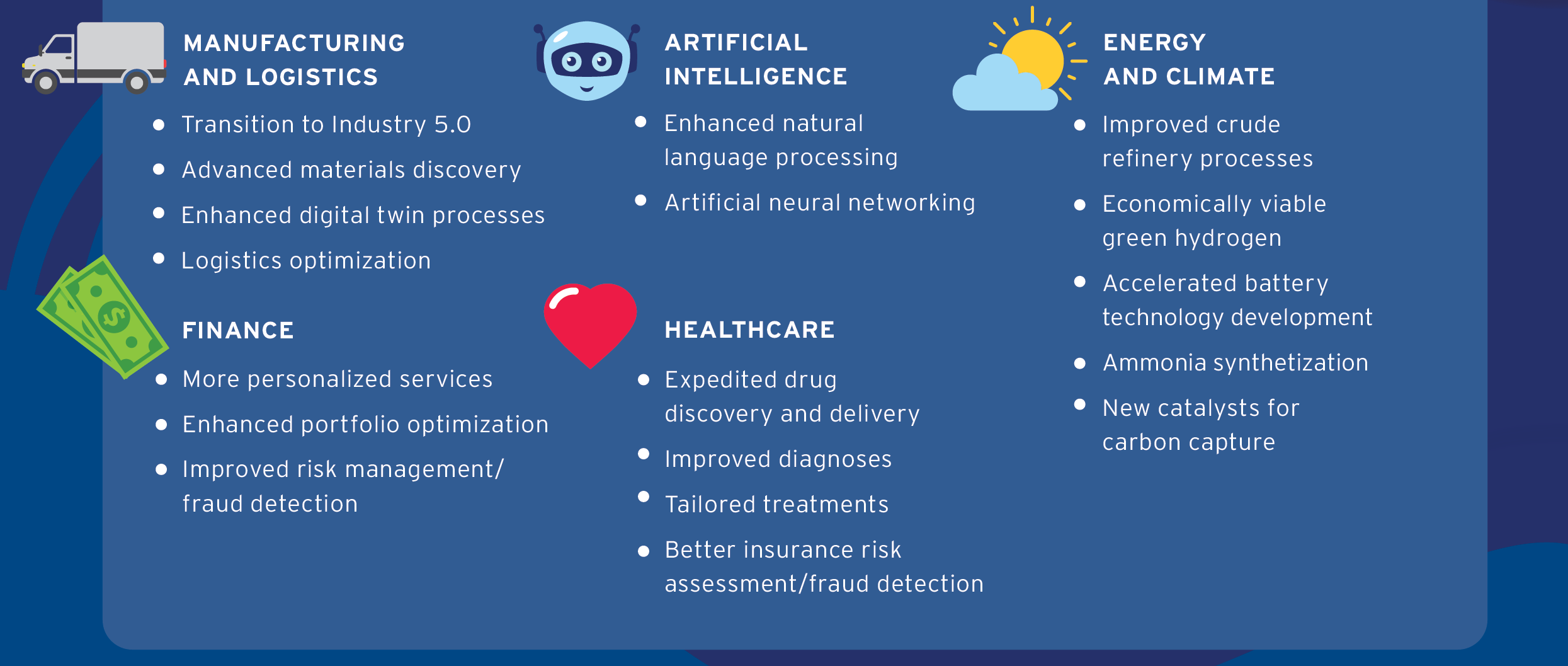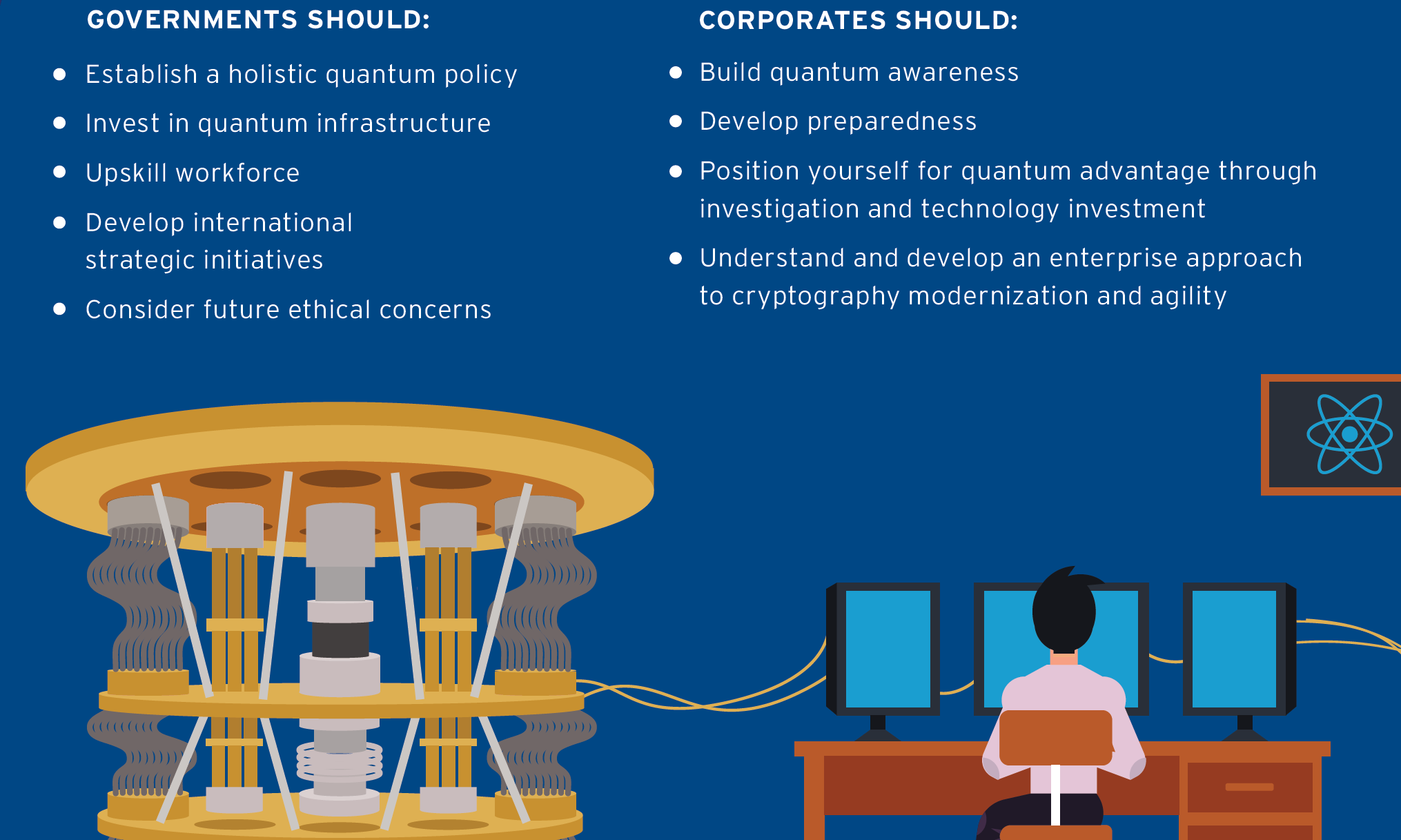Technology advances seem to be dominating the headlines. There are new ways to search the web using artificial intelligence and machine learning, alternate payment systems using blockchain and digital currency, and innovative ways to socialize gaming, and shop using the metaverse. In most cases, the advances have been facilitated by increasing computing speeds that enable faster calculations as well as better connectivity, but all are based on existing computing technology.
But that is all about to change. The next phase of computing — quantum computing — is getting closer to becoming practically useful as we are quickly coming to a point where quantum computers will be able to perform valuable tasks faster, more efficiently, or cheaper than classical computers. Quantum computing breaks away from traditional classical computing using quantum mechanics as a base. If you made it through physics class in high school or college, you might remember that quantum mechanics as a daunting concept associated with geniuses like Albert Einstein, Niels Bohr, and Max Planck. But you don’t have to be a rocket scientist to start thinking about how quantum computing can revolutionize industry and society. And given the speed that quantum computing is progressing, we believe now is the time to for nation-states, corporates, and market participants to start getting ready for its arrival.
In the report that follows, we look at what quantum computing is and what its advantages are compared with classical computing in terms of optimization, machine learning, simulation, and cryptography. We then apply those advantages to specific industries to highlight areas where quantum computing can materially advance processes from logistics and drug discovery to portfolio optimization and cybersecurity.
Most importantly, we set out steps that nation-states and corporates can begin implementing in preparation for the arrival of quantum computing. Setting up appropriate funding to encourage research and development is important on a national scale, as is ensuring education and training to avoid a talent skills gap. Corporates should improve their awareness of how quantum computing will affect their industry, create impact assessments, and contextualize opportunities.
Computing is at an inflection point. After five decades of increasing computational power by Moore's Law (i.e., doubling the number of transistors per chip every 2 years), the growth rate of classical computing is reaching its physical limit. At the same time, the capabilities of quantum computers (QCs) are advancing at a "doubly exponential" rate — in line with Neven's Law — and are close to generating commercial value.

Total addressable market (TAM) estimates for quantum computing vary widely — ranging in 2027 from $700 million to $8.6 billion. Venture capital investment in the QC space has been strong but still pales in comparison to investment in artificial intelligence (AI).

Quantum computing will likely solve practical problems faster, cheaper, or more effectively than classical computers in four broad areas — optimization, machine learning, simulations, and cryptography. Three of these attributes offer significant upside for numerous industries, including Manufacturing & Logistics, Artificial Intelligence, Healthcare, Energy & Climate, and Finance. However, with cryptography, QCs post a potential threat to the cryptographic standards that underpin computer systems and cryptocurrencies.

Due to the exponential scaling power of quantum computers, by the time they offer a practical advantage to business, the gap between early adopters and those using only classical computing will widen at an increasingly accelerated pace. Now it the time to prepare for the transition to capitalize on opportunities and safeguard against risk. To take advantage of the opportunity we suggest government and corporates should prepare in the following ways:



